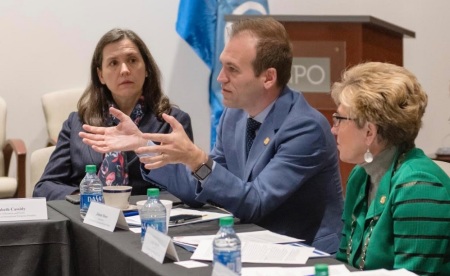Johnnie Moore: Biden, conservatives have much in common on international religious freedom

President-elect Joe Biden and his upcoming administration have similar priorities with conservative evangelicals on international religious freedom policy, Johnnie Moore, who served as an informal evangelical adviser to the Trump administration, told The Christian Post on Friday.
Moore, an evangelical public relations executive who also serves on the congressionally mandated U.S. Commission on International Religious Freedom, announced on Twitter that he had met with members of the Biden administration’s transmission team and believes that religious freedom can be kept bipartisan.
Although he was unable to share the details of this conversation, which happened virtually, he did express a level of optimism.
Both Democrats and Republicans tend to support the cause of international religious freedom, he said. Often, the sort of language Trump administration leaders and Biden appointees use to talk about international religious freedom in countries like China or Myanmar sounds exactly the same.
“If you didn’t know who said them, you couldn’t guess,” said Moore. “International religious freedom is an antidote to the complicated time we’re living in. It can be the antidote to our polarization.”
Moore, who also serves as the president of the Congress of Christian Leaders, said that the Trump administration has done excellent work on upholding religious liberty abroad.
The administration created an annual State Department ministerial that twice invited leaders from around the world to discuss religious freedom in Washington, D.C., created a permanent special adviser to the president on religious freedom issues, freed an imprisoned missionary in Turkey and met with people persecuted for their faith around the world.
However, political divisions in the U.S. have grown so intense that the Biden administration may avoid continuing even excellent Trump policies, he fears. Biden’s representatives didn’t tell Moore if they would continue hosting the ministerial.
“My number one concern is that we are in a hyper-politicized moment where the Biden-Harris administration will miss the achievements of the Trump administration," Moore said. "That could happen for various reasons. I’m trying to do my part to make sure they build on them."
Although the Biden administration has made calls for unity after winning the election, it has not taken action to work with evangelical or conservative leaders who supported Trump, Moore believes.
To successfully lead a bipartisan effort to promote religious liberty, Biden must join allies outside his own party.
"We haven’t seen anything, frankly, but talk,” he said. “I don’t know a single conservative evangelical in the country that [Biden’s transition team] has substantively engaged with on a single issue.”
The Biden administration faces a rapidly changing world. Moore said it feels like eight years of change happened during Trump’s four-year presidency. The change comes from both Trump's reshaping of American priorities and from the rise of China as another global power.
The U.S. should take a similar approach to China as it once took with the Soviet Union, the religious freedom activist said.
President Xi Jinping’s actions resemble those of late Chinese dictator Chairman Mao Zedong more than they resemble the actions of the nation’s recent presidents. Today’s China combines the power of modern surveillance with communist propaganda. It holds global ambitions to extend its power and authoritarian system using diplomatic influence.
Often, supposedly neutral organizations like the U.N. fall under the influence of dictators and authoritarians in China and elsewhere, he said.
“The Chinese have worked to control or influence [international organizations],” said Moore. “My concern is the U.S. should absolutely take a multilateral approach to these issues but I would hate to see the Biden-Harris administration fall into the arms of the multilateral system.”





















